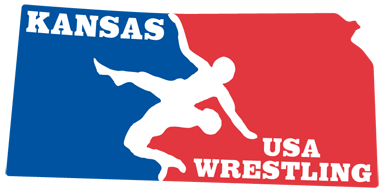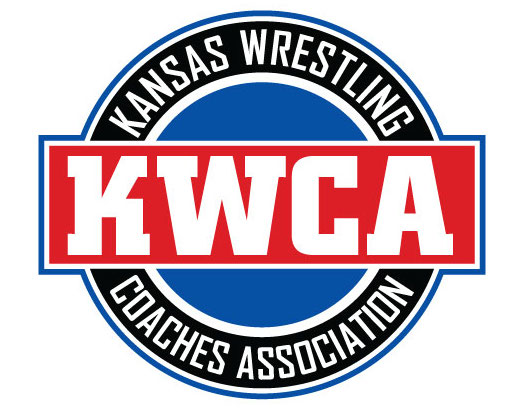As the recruiting season arrives, there have been a number of posts indicating someone is not good enough to attend this school or is too good to attend a junior college, etc., etc, etc.
With this in mind, I thought I would share some experiences and observations.
Let's say that you are a senior and have just won a high school state championship in wrestling. Congratulations on this honor - it is certainly something to be proud of, so be sure to enjoy the moment while it lasts. I in no way intend to downplay your success, as I once lived it and loved it too.
But to put your accomplishment into perspective - we know there are 50 states and lets say that the average state has 3 divisions/classifications in its high school ranks. That means you and 149 other people at YOUR WEIGHT CLASS are celebrating a state championship this year! (For the record -if memory serves me correctly, I believe the actual number is 164 state champs at each weight in the United States each year).
So, you are one of the 150 best at your weight - and that assumes that you can beat the 2nd, 3rd, 4th place medal winners from every other state (which is questionable given that some states like California and New York only have one state tournament without separate classifications - note that many eventual NCAA All-Americans fail to win championships in these states).
Oh, but you just won your 2nd state title? Well there were a 104 2x state champs entered at high school nationals this year and who knows how many more that didn't enter.
You are a three time state champ? 44 individuals were at Cleveland with 3 state titles this year.
But, you were a 4x champ? There were 16 4x champs entered at Cleveland this year and only four made the finals.
Take some time to enjoy your high school success, you truly deserve it. It is a testiment to the effort you expended and you should carry these important memories with you for the rest of your life.
But keep in mind that your high school success in no way clears the way for automatic success in college. Likewise, a lackluster high school career does not bar you from success at the collegiate level.
Success at the collegiate level is based more upon work ethic, perserverence, focus, discipline and a commitment to daily improvement in technique.
There are very few Cael Sandersons or Steven Moccos who have the ability to experience immediate success in their transition from high school to college. Many incredibly talented wrestlers do not have - nor can they be expected to have at such a young age - the maturity necessary to deal with collegiate wrestling.
Fierce competition (from inside and outside the practice room), injury, tougher academic requirements, the independence of college life and "real world" issues (relationships, lack of structure, money, stress, jobs, etc) all weigh heavily on collegiate athletes and their decision making.
And it takes extreme dedication, focus and discipline to remain committed to a goal when these other issues attempt to steal your focus. For many - out of necessity or choice - wrestling becomes less important.
Just two of the many possible examples are now offered to qualify these remarks. By his own admission Hiawatha's Jeremy Lay had less than a perfect high school career, but no one can discount his success in college. An NCAA D1 All-American honor is an outstanding and remarkable achievement by anyone's standards - especially after considering what most would have predicted for him after his senior year in high school.
Conversely, Carbondale's Jeremy Long was named a high school All-American by every wrestling publication in existence after earning 4 high school state titles. And was one of the nation's most coveted collegiate recruits. But after a short stint at Central Missouri State and an even shorter stint at Colby Community College this year, Jeremy decided that collegiate wrestling was not something that he wanted to pursue. Did he have the talent to earn accolades at the collegiate level? Absolutelty. Did wrestling become less important of a pursuit to him after high school? Apparently so. Should it diminish his legacy of being one of Kansas' greatest wrestlers? I hope not because he is certainly deserving of that distinction.
So, to me, success at the collegiate level is more about desire, focus, dedication, improvement and less about talent. Yes talent is necessary, but I have seen a lot of talented individuals give up on a wrestling career to pursue other interests. Conversely, I have seen a lot of folks with average talent develop into incredible collegiate wrestlers because they were committed to success.
In terms of juco vs. NCAA, this too is less about talent and more about circumstances. The list of juco All-Americans who have gone on to earn NCAA honors is long - a few of the recent names would include Daniel Cormier, Orville Palmer, TJ Williams, Eugene Harris and Tony Davis.
The competition is tough no matter what division you wrestle in. Obviously NCAA DI is the premier division, but juco is right up there too.
Daniel Cormier - who won this year's PAN-AM Games title, lost to Cael Sanderson 8-4 in the 2001 NCAA finals and placed 3rd at HS Nationals - had to wrestle in juco due to prop-48 restrictions on DI eligibility. He was a 2x juco national champ. Try telling some of the 70+ people he beat during his two years at Colby that juco competition is weak. There have been a lot of other prop-48 talents who have dominated the NJCAA ranks before moving on to the NCAA level.
Juco coaches also benefit from an age restriction rule. This rule limits the age of NCAA DI athletes at 27 years. So a number of juco coaches are recruiting international talent too old to compete in the NCAA. Matt Murray of Colby wrestled - and beat- a 2x Olympian from Romania who eventually won two NJCAA titles. Jalon Crowley and Jack Dennis each had the privilege of wrestling a 2x Olympian from the former Soviet Union, Richard Paulikonis. Paulikonis placed 5th at his first Olympics, medalled at the Midlands and at the Las Vegas Open - which are two of college wrestling's most prestigous open tournaments - as a juco wrestler before winning his NJCAA title. You think juco is too easy? Get in line to buy another clue, because you must have lost the one you were born with.
NAIA, NCAA DII and NCAA DIII are loaded with quality US and international talent and I could share similar instances there too.
If an individual has the pre-requisite talent to successfully compete at the high school level (especially in Kansas) he also likely has the talent to compete at any college. The question is whether he has the desire to sacrifice everything in order to improve. And also whether he is willing to fight through the countless episodes of despair and adversity that will accompany him along the path toward success.
The ability to identify talent is the easiest part of collegiate recruiting. It is the ability to predict future development and work ethic amid numerous potential distractions that make or break college coaches.
Oh just another word of advice to all of the successful high school seniors. Your success is something to be proud of and to cherish. But do not expect others to remember your accomplishments or to fall at your feet when you enter a room.
I had what most would consider a successful high school career. But after being out of school for just over 10 years I frequently have high school classmates ask "Did you place at state in wrestling?" and a couple of years ago my own uncle could not remember whether I had won a state title.
Its a funny thing, but after high school people dismiss your former athletic prowess and begin to judge you by your accomplishments as a person.
I doubt that it is coincidence that high school academics and athletics are intended just for this purpose - to develop and shape the character, integrity and moral fiber of those who chose to participate.
Good luck to each of you as you begin the next phase of your life. And congratulations on your accomplishments. You should be proud of what you achieved during your high school career - no matter how incredible or trivial those accomplishments might now seem.
And, for those with the self-confidence to mock those who aspire to attend a Big 10 or Big 12 powerhouse school or belittle another for choosing a junior college, take a moment to reflect that more goes into a choice of college than just past accomplishments. Maybe there is an underlying motive to someone's choice of school that defies historical success or your perception of common sense.







